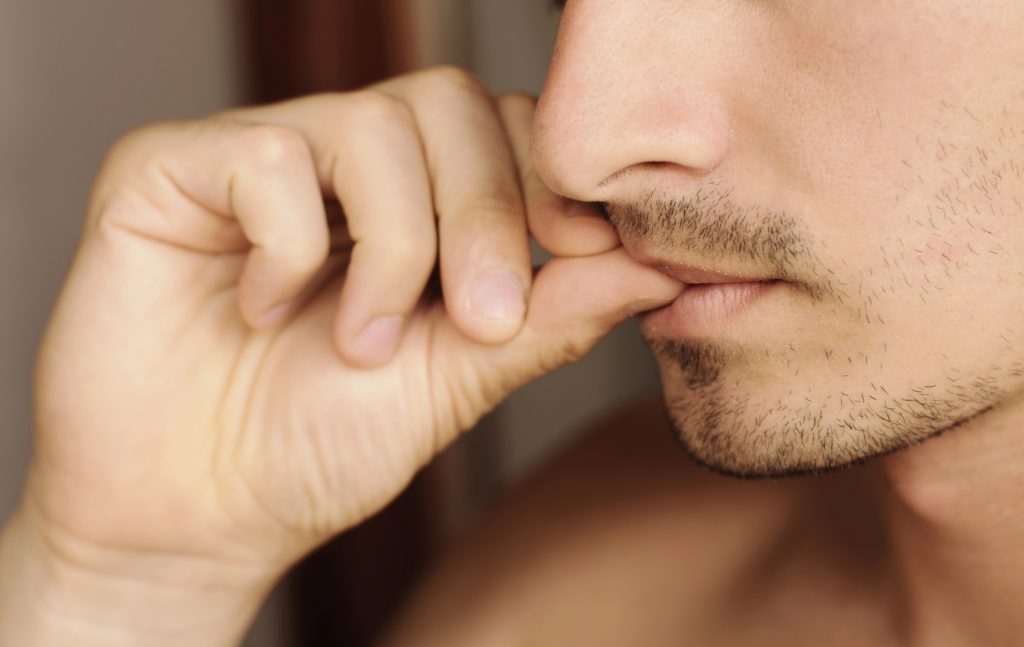
Many of us believe we’re doing everything right to keep our smiles healthy. But what if some of your seemingly harmless daily habits are silently sabotaging your efforts? Many people unknowingly engage in common behaviors that can cause serious damage to their teeth over time without even realizing it.
Stop These Bad Habits Today
You know you should brush twice a day and floss daily, plus make it to the dentist twice a year. But what else can you do for your oral health? Let’s uncover five surprisingly bad habits that might be putting your tooth health at risk.
1. Biting Your Nails
Nail-biting is a common stress or nervous habit, but it’s not so great for your teeth. Your teeth are designed for chewing food, not for gnawing on hard, rigid fingernails. This constant, repetitive pressure can have significant negative consequences for your oral health.
Why it’s so damaging:
- Chipping and Cracking: The force required to bite through a nail can easily cause your front teeth to chip, crack, or wear down prematurely. This is especially true for teeth that may already have fillings or other dental work.
- Jaw Problems: The unnatural position you hold your jaw in while biting your nails can strain your temporomandibular joint (TMJ), potentially leading to jaw pain, clicking, and headaches.
- Introducing Bacteria: Your hands carry a lot of germs. Biting your nails introduces this bacteria directly into your mouth, which can contribute to gum infections and other oral health issues.
2. Chewing on Ice
Hydration is healthy right? While it’s true that water is healthy of your teeth and gums, and ice sounds like a, easy, calorie-free treat, it’s actually a major hazard for your teeth. Biting down on something as hard and frozen as an ice cube can cause irreversible damage to your otherwise tough tooth enamel.
The combination of cold and pressure creates a bad combination that can lead to:
- Cracked or Fractured Teeth: A single, hard bite on an ice cube can cause a tooth to crack, sometimes in a way that isn’t immediately visible but can cause pain later on.
- Damaged Dental Work: Chewing ice can easily break fillings, crowns, and veneers, leading to costly and unexpected dental emergencies.
- Enamel Erosion: Even if a tooth doesn’t crack, the habit can cause micro-fractures and wear away your protective enamel over time, leading to increased sensitivity.
3. Using Toothpicks
A toothpick might seem like the classic tool for removing food stuck between your teeth. While it can be useful in a pinch, aggressive or improper use can do more harm than good. Wooden toothpicks are often too abrasive and poorly shaped for the delicate spaces between your teeth.
The risks of relying on toothpicks include:
- Damaging Gum Tissue: It’s very easy to injure your gums with hard wooden toothpicks, causing them to bleed and recede.
- Breaking and Splintering: A wooden toothpick can splinter, leaving small fragments of wood lodged in your gum tissue, which can cause inflammation or infection.
Instead of a toothpick, dental floss, floss picks, or interdental brushes are specifically designed to clean safely and effectively between your teeth without harming your gums.
4. Brushing Too Hard
Many people believe that scrubbing vigorously is the best way to get their teeth squeaky clean, but a too-aggressive approach can be highly destructive. Gentle pressure is often more than enough to dislodge food particles and minor plaque buildup.
Brushing too hard, too often, or with too tough of a brush can lead to:
- Enamel Abrasion: You can literally wear away your tooth enamel. This exposes the underlying dentin, a softer, yellowish layer, which can make your teeth appear discolored and feel extremely sensitive.
- Gum Recession: Aggressive brushing can harm your gum tissue, causing it to pull away from your teeth. This not only exposes the sensitive tooth roots but also increases your risk for gum disease and cavities.
Always use a soft-bristled toothbrush, brush 2-3 times a day, and think of brushing as massaging your teeth and gums.
5. Drinking Sports and Energy Drinks
You grab a sports drink to rehydrate after a workout or an energy drink to get through an afternoon slump, thinking you’re making a better choice than soda. Unfortunately, these drinks are often just as bad, if not worse, for your teeth. They are typically loaded with sugar and are highly acidic.
This combination creates a dangerous environment for your enamel.
- Enamel Erosion: The acid in these drinks can weaken the tooth surface, eroding the outer layer of tooth enamel and leaving teeth vulnerable.
- Tooth Decay: Sugar feeds the harmful bacteria that cause cavities and gum disease.
When you need to hydrate, water is always the best choice for your oral and overall health.
It’s Never Too Late to Break a Bad Habit
Recognizing these habits is the first step toward protecting your smile. By being more mindful of these behaviors, you can avoid unnecessary damage and preserve your smile for a lifetime.
If you’re concerned that one of these habits may have already affected your teeth, or if it’s time for your regular check-up, call us to schedule your appointment today!